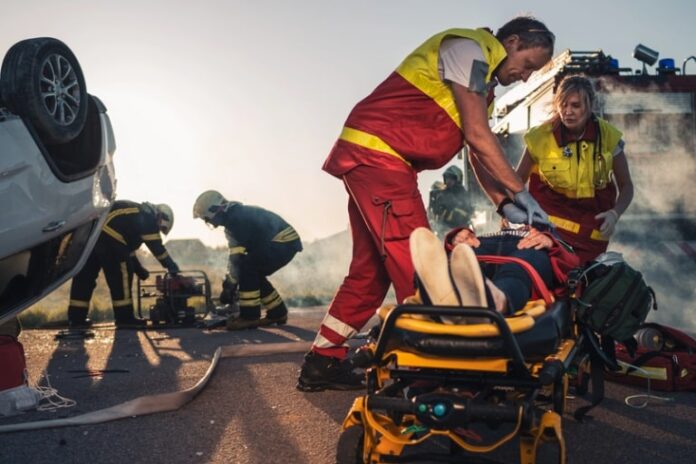Every day, first responders step into situations where every second is weighted with the possibility of saving a life, preventing further harm, or offering comfort in the darkest moments. Their stories are rarely told in detail, yet they reveal the unseen human cost of emergencies and the courage it takes to face them. For families who later turn to the attorneys at Hersh Kirtman, these first responders are often the first source of hope in a life-altering moment.
A Race Against Time
When sirens pierce the silence, it marks the beginning of a race against time. Firefighters, paramedics, and police officers respond knowing that their swift actions can mean the difference between survival and tragedy. Unlike television dramatizations, the real scenes are filled with chaos, uncertainty, and heart-wrenching decisions. First responders often rely on instinct honed through training, making split-second judgments that others would struggle to make in hours.
One paramedic described arriving at an accident where a child was trapped in a vehicle. With no time to wait for specialized equipment, the team used every tool at their disposal to free the young passenger. In recounting the story, what stood out most wasn’t the act of rescue but the silence after; the weight of realizing how fragile life can be when seconds are lost.
The Emotional Toll Behind the Uniform
The uniform may protect a responder physically, but emotionally, there are no shields. The hidden battles they carry often go unnoticed by the public. First responders are more likely than the general population to experience post-traumatic stress disorder (PTSD) and depression due to the intensity of their work.
Imagine arriving at a scene where multiple lives hang in the balance, knowing that despite your best efforts, not everyone will make it. The grief of families becomes a memory they carry home, replayed in their minds long after the sirens fade. These silent burdens often shape their perspectives, prompting them to advocate for improved safety measures and heightened community awareness.
Unsung Acts of Compassion
While dramatic rescues often capture attention, many of the most impactful moments are quiet acts of compassion. A firefighter holding someone’s hand while waiting for an ambulance. A police officer sits on the pavement with a shaken teenager until the family arrives. A paramedic explains each step to a frightened accident victim to ease their fear.
These small gestures remind us that first responders are not only trained professionals but also human beings offering empathy in moments of despair. Their compassion ensures that those in crisis don’t just receive medical attention but also feel seen and cared for.
The Ripple Effect of Their Work
What happens in those crucial seconds doesn’t end at the scene. Survivors and families carry those experiences forward, sometimes seeking accountability and justice for what occurred. This is where the intersection of law and emergency response becomes clear.
The attorneys at Hersh Kirtman understand that behind every case file lies a story shaped by the initial response. They often hear directly from families who recall the words and actions of first responders as pivotal in their recovery journey.
Stories That Rarely Reach the Public
Many of the most extraordinary stories never reach the public eye because first responders rarely seek recognition. They consider their efforts part of the job, even when it means risking their own safety. Yet behind closed doors, these experiences define careers and personal lives.
Some responders keep journals to process what they’ve seen; others quietly support colleagues struggling with the invisible weight of trauma. These untold narratives are essential reminders that heroism isn’t always grandiose; it’s often found in persistence, empathy, and resilience in the face of unimaginable circumstances.
Building Awareness and Support
Recognizing the sacrifices of first responders requires more than gratitude; it demands systemic support. Access to mental health resources, proper training, and community education are vital. Strengthening support networks not only helps responders cope but also improves the effectiveness of emergency services.
Community awareness also plays a role. Understanding the pressure responders face can inspire greater respect for safety measures, from road awareness to emergency preparedness. It’s a collective responsibility to ease the weight placed on those who rush toward danger while others move away.
Conclusion
The untold stories of first responders highlight the courage, sacrifice, and compassion that unfold in the span of mere seconds. Their actions ripple through lives long after the flashing lights disappear, shaping outcomes for survivors and their families.
By honoring their work, supporting their well-being, and acknowledging their role in moments that define lives, we ensure their silent heroism does not go unnoticed. And in times when accountability or justice is sought, families know that the attorneys at Hersh Kirtman are ready to stand beside them, carrying those stories forward with care.




